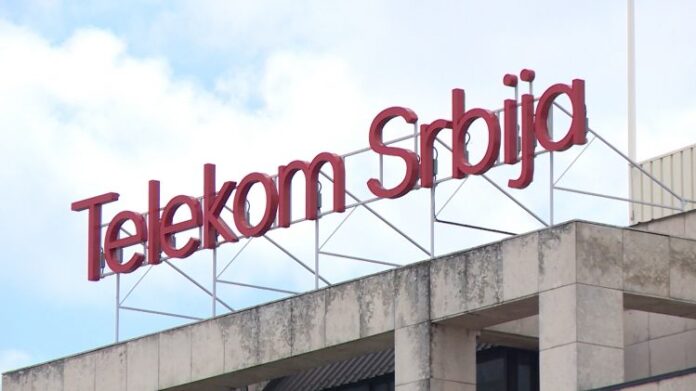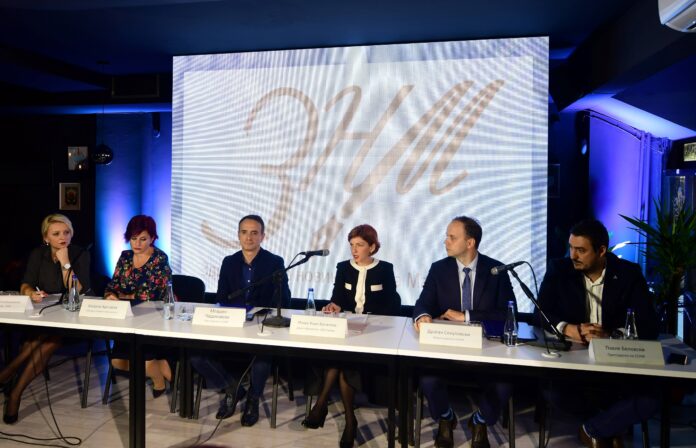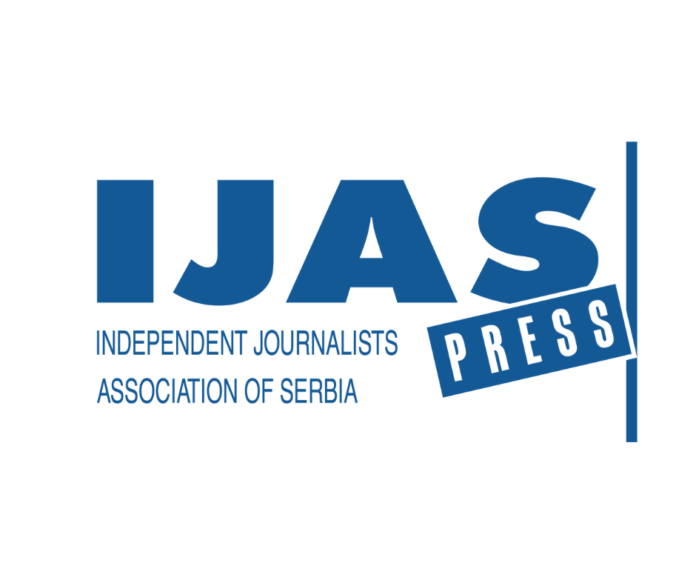On November 2nd, the International Day to End Impunity for Crimes Against Journalists, the Basic Public Prosecutor’s Office (BPPO), in cooperation with the Association of Journalists of Macedonia (AJM) and the Independent Union of Journalists and Media Workers (SSNM) appointed three new special public prosecutors for the Tetovo, Bitola, and Stip appeal areas. On that occasion, an event was organized where more than 30 journalists and media workers were presented with the results, the impressions of the cooperation so far, as well as the new initiatives that are being undertaken in the direction of promoting cooperation between the guild associations and the prosecutor’s office.
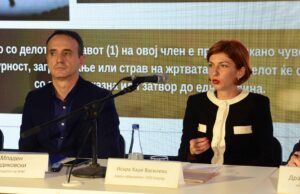
The event’s theme was “New contact points in basic public prosecutor’s offices for greater protection and ending impunity for crimes against journalists and media workers.” A panel discussion was held in which the president of AJM, Mladen Chadikovski, the president of SSNM, Pavle Belovski, and Iskra Hadji Vasileva, the public prosecutor appointed to monitor the actions related to the safety of journalists under the jurisdiction of the Skopje Public Prosecutor’s Office, participated. Dragan Sekulovski, the executive director of AJM, and Biljana Arsovska, the spokesperson of the RSM Public Prosecutor’s Office, also contributed to the discussion.
In his address, the president of AJM recalled a large number of unsolved cases of attacks on journalists the need for their immediate resolution, especially the cases of April 27: “Journalists face a series of challenges, including physical violence, harassment, threats, and legal action, all of which can lead to self-censorship and the decline of investigative journalism. Today, we are reminded of the injustice done to us, the forgotten and unresolved court cases, and the SLAPP lawsuits that are more prevalent. All the unsolved attacks on journalists on April 27 the wiretapping of journalists, the year started with public disparagement and underestimation of journalists by politicians… The list of unsolved cases is long, but our demands and expectations are even greater. Our symbol of impunity is April 27th; let’s not let it happen again” – said Chadikovski.
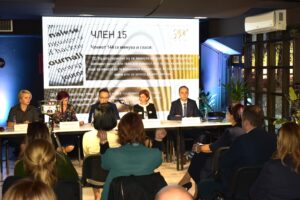
The president of SSNM, Pavle Belovski, emphasized that “November 2nd is a defining day when we remember how many of us are victims of violence. The purpose of this day, through this debate, is to revisit the context of why the number of attacks is not only decreasing but the violence and crimes against us are intensifying. But it is still an honor to be at this table where we have the prosecutor’s office as a partner because six years ago, I personally physically attacked the Ministry of the Interior in the absence of the changes in the criminal law by which an attack on a journalist is treated as an attack on an official, my the assailant was then prosecuted for misdemeanor offenses, i.e., disturbance of public order and peace. Since then, our fight for these changes, through which we expect to achieve the goal, has not stopped. Our imperative is zero attacks on journalists due to the fasting of criminal responsibility, which will contribute to the eradication of this type of violence and raise awareness in the public discourse that the attack on journalists is not an attack on the person but an attack on democracy and an attack on the public interest,” emphasized Belovski.
The prosecutor, Iskra Hadji Vasileva, referred to the past year and the activities that the Skopje Public Prosecutor’s Office had concerning the topic: “After I was appointed as the contact person for monitoring cases related to the safety of journalists under the jurisdiction of the Skopje Public Prosecutor’s Office, it is good that we can say that we don’t have many subjects when it comes to statistics. But we know that statistics should not be understood easily without in-depth methodological analyses; in any case, the numbers, specifically for our country, are not bad this year. I am encouraged by the fact that we also have new colleagues who we officially presented today from which prosecutor’s offices they come from, namely the prosecutor’s offices from Tetovo, Bitola, and Shtip. This represents a step forward in this fight and this commitment that the prosecutor’s office shows when protecting journalists,” said the prosecutor.
The event aimed to send a loud message to the public that attacks on journalists will not be tolerated and will be severely condemned. On the other hand, a message will be sent to the institutions to act responsibly and clear up the attacks on journalists as soon as possible. This event will be a good opportunity and forum where journalists and prosecutors can exchange ideas and information to improve cooperation between these professions.
The International Day to End Impunity for Crimes Against Journalists – November 2nd, has been recognized by the United Nations. This day is marked to draw attention to the issue of impunity, which refers to the failure to bring perpetrators of crimes against journalists and media workers to justice.




